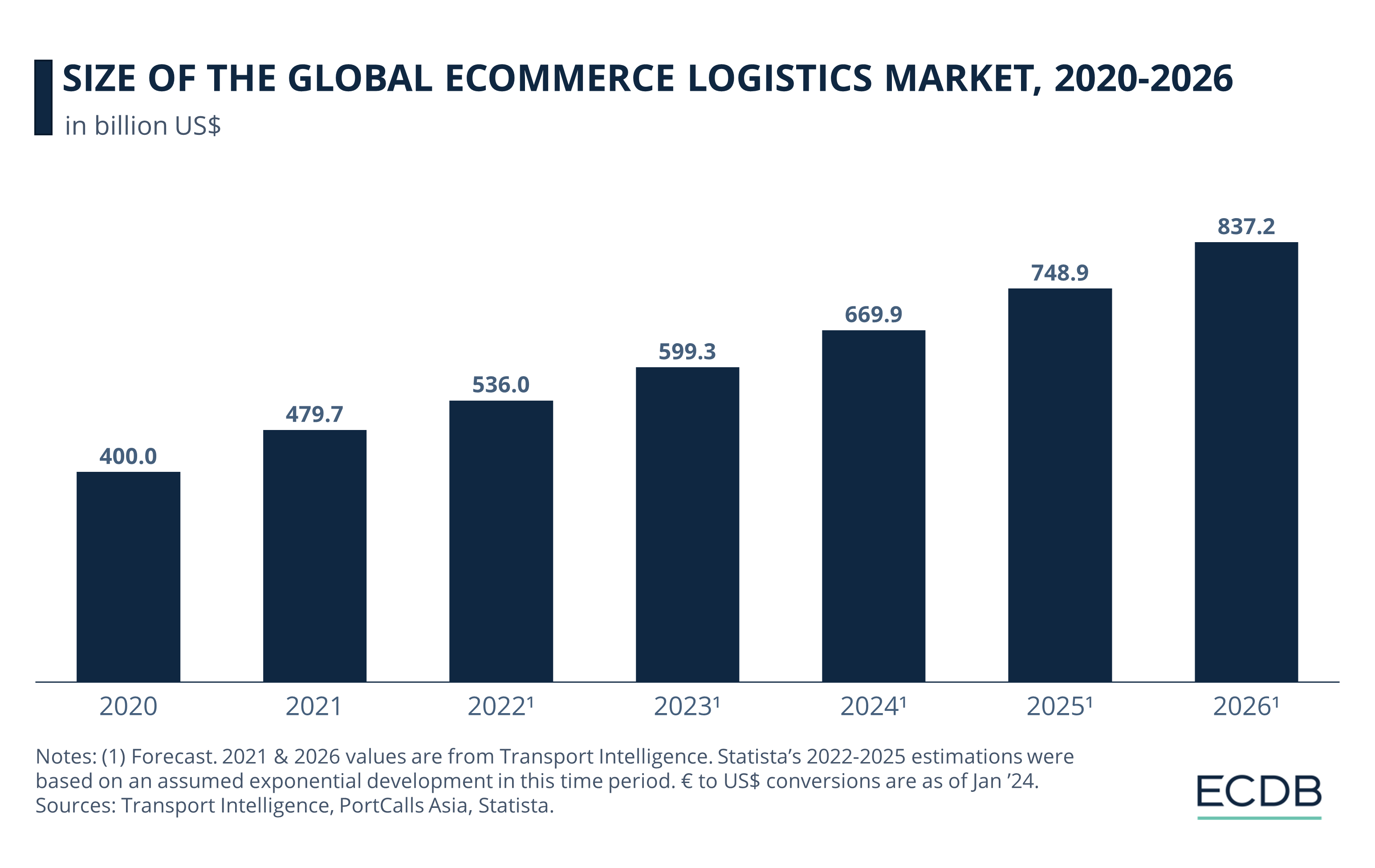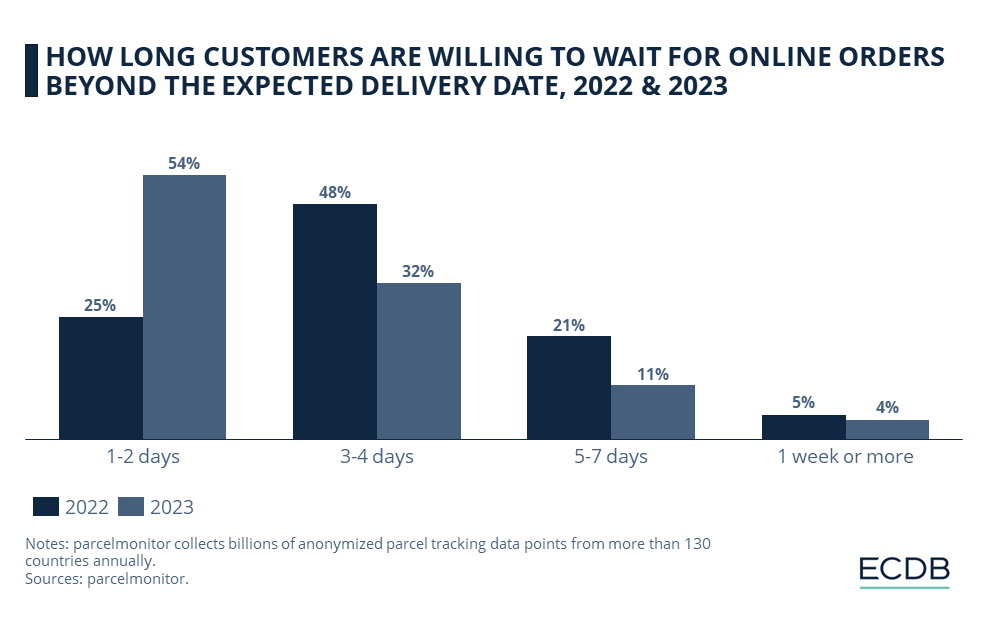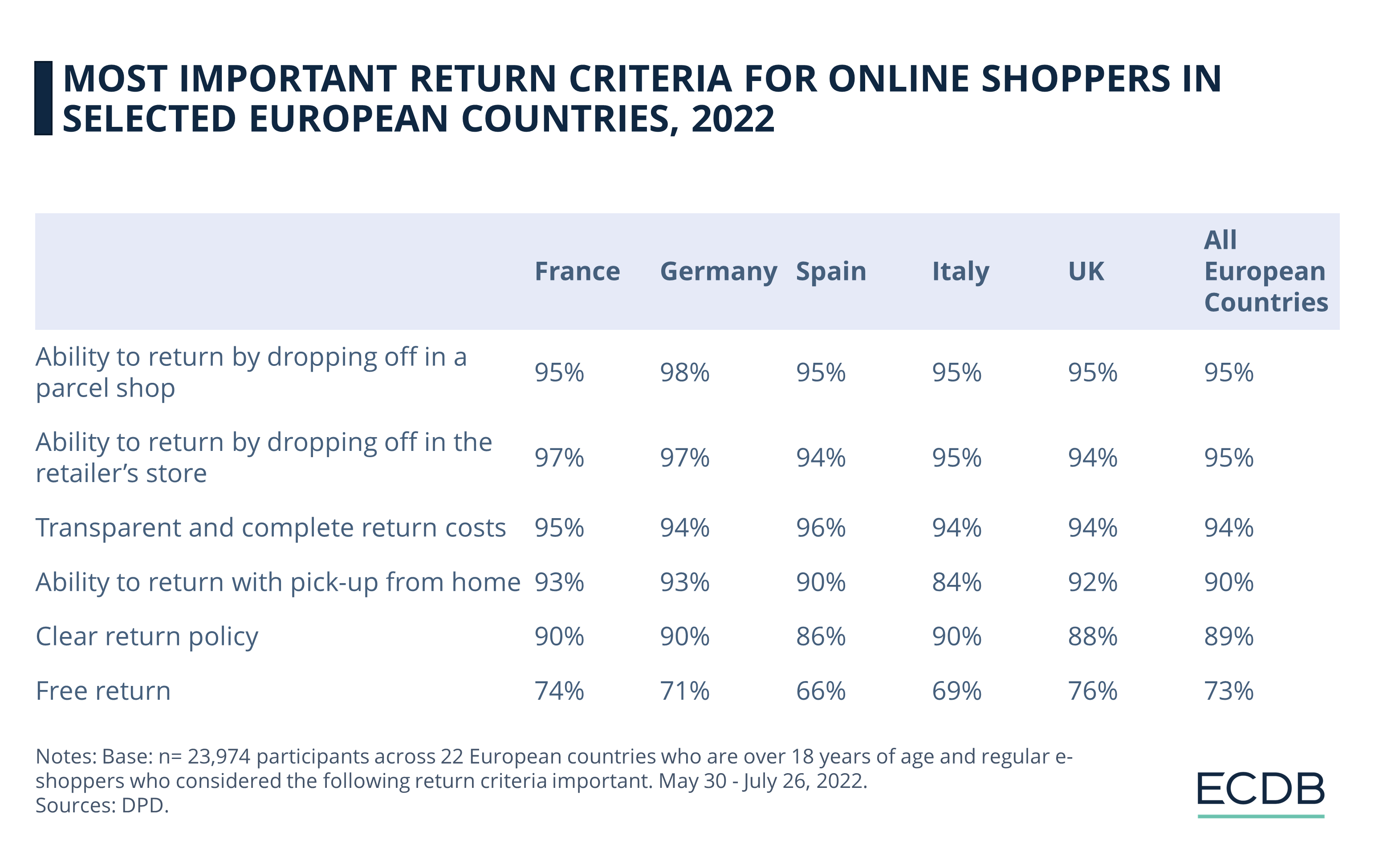eCommerce: Logistics
eCommerce Logistics: What Is It & How Does It Work
Discover how eCommerce logistics, from warehousing to 3PL, drives online retail success. Uncover key strategies for efficient order fulfillment and shipping.
Article by Cihan Uzunoglu | January 26, 2024
eCommerce Logistics: Key Insights
Fundamentals of Logistics: In eCommerce logistics, efficient management of warehousing, inventory, order processing, shipping, and returns is vital for successful business operations, ensuring quick and accurate order fulfillment while minimizing costs and errors.
Reaching the Customers: Effective shipping and returns management are essential, with shipping focusing on delivering products quickly and adhering to international standards, and returns management involving careful evaluation and handling of returned items to maintain customer satisfaction and operational efficiency.
Outsourcing Operations: Using a Third-Party Logistics (3PL) provider for eCommerce logistics helps businesses by managing tasks mentioned above, allowing the business to concentrate on growth and customer service.
eCommerce logistics is a crucial aspect for online retailers that focuses on the management, storage, and transportation of goods from manufacturers to customers. It involves the planning and execution of various processes such as order fulfillment, warehousing, inventory management, and delivery.
With the rise of online shopping and increasing demand for fast and reliable delivery services, eCommerce logistics today plays an even more vital role for online stores in ensuring customer satisfaction and retention, as well as the overall success of an eCommerce business. For a better understanding of the market, make sure to check out our analysis.
eCommerce Logistics Supply Chain Components
The components of eCommerce logistics are warehousing, inventory management, order processing, shipping and returns management, each play a critical role in the successful operation of an eCommerce business.
Warehousing
The physical location, commonly known as a warehouse, where goods are stored before they are shipped to customers. Efficient warehousing involves proper organization and inventory management practices, such as strategically arranging products, implementing real-time tracking systems, and conducting regular stock checks.
These measures are put in place to ensure smooth and streamlined operations, enabling quick and accurate order fulfillment while minimizing errors and delays in the supply chain.

Inventory Management
Effective inventory management is crucial for businesses to ensure efficient operations. It involves tracking, forecasting, replenishing stock, and maintaining optimal levels through the use of an inventory management system. By monitoring inventory carefully, businesses prevent stockouts and overstocking, striking a balance between meeting customer demand and minimizing costs.
Analyzing sales data, market trends, and customer preferences enables accurate demand forecasting in eCommerce logistics. Streamlining the supply chain reduces lead times, transportation costs, and improves operational efficiency, enhancing customer satisfaction and order fulfillment.
Order Processing
After online orders are placed, a series of steps need to be taken to ensure efficient and accurate processing. Beginning with a well-organized warehouse inventory, this process requires a keen eye for detail and a deep understanding of the products available.
Once the product is chosen, it is packed to ensure its safe transportation. The packaging materials used are specifically chosen to provide maximum protection and minimize any potential damage during transit.

Finally, the order is prepared for dispatch, with all necessary documentation and labeling in place. For an eCommerce supply chain running smoothly, a functioning order processing system is a critical component.
Shipping
Shipping involves the physical movement of the product from warehouse to doorstep. It includes selecting the right carrier, tracking the shipment, and ensuring fast shipping.
As the eCommerce industry expands beyond borders, international shipping has become an integral component of eCommerce logistics. It involves shipping products from one country to another, adhering to various international trade regulations and customs protocols.
Properly managing international shipping can be challenging, but it also provides significant growth opportunities for eCommerce businesses.
Returns Management
Also known as reverse logistics, this is the crucial process of efficiently managing returned products. It encompasses various steps, such as carefully inspecting the returned item, meticulously evaluating its condition, and deciding on the appropriate action to take.

This may involve restocking the product if it meets quality standards (while updating stock levels), responsibly discarding it if necessary, or even coordinating its return to the manufacturer for further assessment. Additionally, reverse logistics includes diligently processing the customer's refund or facilitating an exchange to ensure a seamless experience.
Third-Party Logistics (3PL) in eCommerce Logistics
Third-Party Logistics, often referred to as 3PL, is an essential facet of the eCommerce logistics process. As a 3PL provider, a company takes on the responsibility of managing a business's logistics operations, freeing up time and resources for the business to focus on growth and customer service.
3PL services can encompass a wide range of tasks including warehousing, order fulfillment, shipping, returns management, and even customer service. This means that goods are stored, managed and shipped by the 3PL provider, from receiving orders to ensuring the product reaches the final customer.
Learn More About ECDB
eCommerce Logistics: FAQ
What are eCommerce logistics?
eCommerce logistics refers to the processes and activities involved in managing the flow of goods, from the point of origin to the final destination, in online retail operations. It encompasses order fulfillment, inventory management, warehousing, shipping, and delivery.
Are eLogistics and eCommerce the same thing?
eCommerce is the act of making and trading a product on the Web. Electronic Logistics enables you to arrange and handle transport via internet. Logistic e-commerce is an element in online commerce behind the scenes but extremely important. Various parts could be: brick and mortar stores and storage centers, sales distributions, or retail.
What is eCommerce in a supply chain?
eCommerce in supply chain involves conducting business transactions through electronic platforms. It streamlines supply chain activities like procurement, inventory management, and logistics. Leveraging eCommerce improves efficiency, reduces costs, enhances customer experience, and boosts competitiveness in the digital marketplace.
How does eLogistics work?
E-logistics, or electronic logistics, optimizes operations using technology and digital systems. It includes order management, inventory tracking, transportation planning, and delivery coordination through electronic platforms. By leveraging IoT, AI, and cloud computing, e-logistics enhances efficiency, reduces costs, and improves customer service.

Click here for
more relevant insights from
our partner Mastercard.
Related insights
Deep Dive
DoorDash and Uber Eats on the Hunt for the Number One Express Online Delivery Service
DoorDash and Uber Eats on the Hunt for the Number One Express Online Delivery Service
Deep Dive
Regional Carriers Over Larger Shipping Conglomerates in European eCommerce
Regional Carriers Over Larger Shipping Conglomerates in European eCommerce
Deep Dive
eCommerce in Canada: Top Stores, Market Development & Trends
eCommerce in Canada: Top Stores, Market Development & Trends
Deep Dive
Google's AI Project Jarvis Could Change Online Shopping
Google's AI Project Jarvis Could Change Online Shopping
Deep Dive
Peak Season of eCommerce & Air Cargo Capacity Crisis
Peak Season of eCommerce & Air Cargo Capacity Crisis
Back to main topics